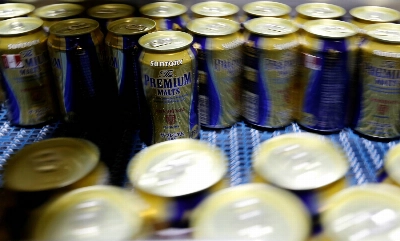Movies about quirky, dysfunctional families are a thriving subgenre in Hollywood, "Little Miss Sunshine" being the most successful recent example. The Japanese make these films as well, but they tend to be more surreal -- or rather manga-esque, as seen in Katsuhito Ishii's "Cha no Aji (Taste of Tea)," Kaze Shindo's "Korogare! Tamako (The Princess in an Iron Helmet)" and Masanori To-minaga's "The Pavilion Sansho Uo (Pavilion Salamandre)."
Naoki Nagao's "Argentine Baba (Argentine Hag)" is in this line as well, though its source material is not a manga but an eponymous novel by Banana Yoshimoto. Published with English and Japanese text on facing pages and illustrated by Yoshitomo Nara, the novel is squarely targeted at Yoshimoto's huge, mostly female fan base.
It is also reminiscent of her 1987 novel "Kitchen," which was filmed by Yoshi-mitsu Morita in 1989. In both films the heroine is a young woman left alone after a death -- of a beloved grandmother in "Kitchen," of a mother in "Argentine Baba." And in both she finds spiritual refuge in the kitchen -- cooking in the earlier book, baking bread in the latter, as well as support from an elder, wise figure belonging to a socially marginalized group -- a transsexual in "Kitchen," an eccentric cat lady in "Argentine Baba."


















With your current subscription plan you can comment on stories. However, before writing your first comment, please create a display name in the Profile section of your subscriber account page.